Outcomes
What Can You Do with a Physics or Engineering Science Degree from Luther?
About 20% of our graduates go on to careers in particle physics, astrophysics, materials physics, medical physics, etc. For example, Zach Stottler ’15 completed a Ph.D. in elementary particle physics at Virginia Tech, continuing his work with the Belle II Collaboration that he began as a research student of Dr. Pedlar. He completed a postdoctoral residency in medical physics at the Mayo Clinic, where he now serves as a clinical medical physicist.
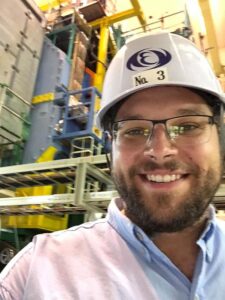
Examples: Computer programmer, technician
Alex Rigdon ’13 works as a process engineer at Polar Semiconductor, Bloomington, Minn. The outfit he is wearing is so that he can enter the cleanroom where they create electronic devices out of semiconductors like silicon.
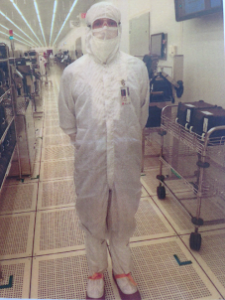
Over half of our students who major in physics pursue careers in engineering through graduate work. Krista (Morris) Blessing ’10 earned a masters degree in structural engineering from the University of Minnesota and now is a practicing structural engineer in Rochester, Minn. While many students who pursue engineering as a career have majored in physics like Krista (and we expect some will continue to do so) the new Engineering Science program offers a more structured approach to prepare an excellent foundation for engineering.
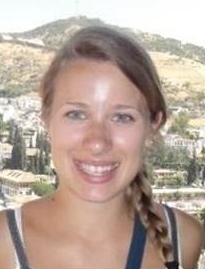
Examples: military officer, actuary, musician, doctor
Several of our physics graduates have chosen to continue their careers in the military. Tory Hegrenes ’01 is a U.S. Navy lieutenant and flight officer. Hegrenes graduated from the Navy’s Fighter Weapons School (TOPGUN) in 2007 with follow-on orders to Strike Fighter Weapons School, Atlantic (SFWSL). He served as Close Air Support and Special Operations Integration subject matter expert. He was the branch head of the Navy’s East Coast Forward Air Controller Airborne division.
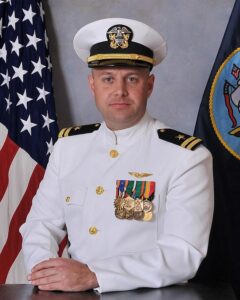
Becoming a physics teacher is a great way to pass on your love of science to others.
Clara Olson ‘13 has been teaching high school science since she graduated from Luther with a major in physics and a minor in secondary education.
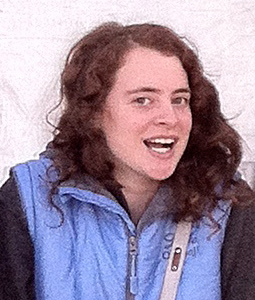
Luther physics graduates tackle a wide variety of careers in the sciences—not just in physics or astronomy, but engineering, teaching, medicine, and even law.
The diverse set of experiences both inside the classroom and out help to prepare our graduates for their next steps in life, giving them broadly applicable skills in critical thinking and problem solving that have served them well.
Here are a few brief profiles of Luther physics graduates over the past 15 years and how they’ve decided to use their Luther physics education.
Madilyn Heinke (’19) is a digital services media coordinator with Titletown Tech in Green Bay, Wisconsin. At Luther, she majored in physics and visual communications; her experience in these two very different fields helped her land her role in Titletown Tech’s Equity League, where she works to create more opportunities for Black and Latin companies in the field of visual communications. See more on her Luther journey at her alumni story.
Will Imoehl (’17) is a postdoctoral associate with Carnegie Mellon University. He left Luther to pursue his Ph.D. in Particle Physics from Indiana University, which he obtained in 2022. His research at Indiana was with the BES III Collaboration, a collaboration which operates an experiment in Beijing, China; his work with Carnegie Mellon University is on the GlueX experiment.
Alexa Schroeder (‘17) is a science teacher at the Wildlands Science Research School in Eau Claire, Wis.
Jayse Weaver ’16 is a graduate student in Medical Physics at the University of Wisconsin. After Luther, he spent time working at the Mayo Clinic in Rochester, Minn., as a research technologist, and entered the Ph.D. program at Wisconsin in 2019. He is part of a research laboratory working on the development of new technologies for pediatric neuroimaging.
Zachary Stottler ’15 completed a postdoctoral residency in medical physics at the Mayo Clinic in Rochester, Minnesota, where he now serves as a clinical medical physicist. After Luther, where he had worked with Dr. Pedlar in elementary particle physics with the Belle Experiment, he went to Virginia Tech, where he continued to work with Belle and Belle II, and obtained his Ph.D. in elementary particle physics in 2022.
Gian Andreone ’14 is a postdoctoral research fellow at Princeton University, working on the SWAPI instrument on the IMAP mission and helps develop electronics and test chambers in the lab. He also pursued a study of the moons which orbit Jupiter, concerning in particular how ionized particles ejected from Jupiter’s moons interact with the Jovian magnetosphere. After graduation from Luther, Gian obtained his Ph.D. in Plasma Physics at University of Iowa, graduating in 2021.
Jon Zarling ’13 is a postdoctoral researcher with the University of Regina in Saskatchewan, Canada. After Luther, Jon obtained his Ph.D. in Particle Physics from Indiana University, where he worked on the GlueX experiment that is based at Jefferson Laboratory in Newport News, VA. His current position at Regina is also connected to GlueX.
Clara Olson ’13 is a high school math and science teacher at the Open World Learning School in St. Paul, Minnesota.
Dallas Wulf ‘12 is a research scientist with McGill University in Montreal Canada. He currently serves as project manager for the X project which is installed in southern British Columbia. After Luther, he entered a Ph.D. program in Particle Astrophysics at the University of Wisconsin, obtaining his Ph.D. in 2018. He then went on to work as a postdoctoral researcher at the McGill University Space Institute, and recently moved on into his permanent position at McGill. See his alumni story in which he speaks directly to his Luther College experience.
Kris Klein ‘08 is an assistant professor in the Department of Planetary Sciences at the University of Arizona, a position he began in 2018. After graduating from Luther, Kris went to the University of Iowa, where he obtained his Ph.D. in Plasma Physics in 2015.
Note: Prior to academic year 2023-24 and the introduction of the Engineering Science program, all students pursuing engineering majored or minored in physics. A degree in Engineering Science is now available, and we expect that many students who pursue graduate work in engineering will come through that program as well.
The following brief profiles highlight the variety of careers in engineering that our physics graduates have begun. This is a small subset of our graduates from the past twenty years, and feature only those who have begun their careers.
Jack Benson (‘18) is a civil engineer working with the Minnesota Department of Transportation on sustainable design of road systems. After Luther, Jack entered the Department of Civil and Environmental Engineering, where he obtained his MS in Civil Engineering in 2020.
Nicholas Hentges (‘18) is an electrical engineer working at Westinghouse in the nuclear power industry in Shoreview, Minnesota. Upon graduation from Luther, Nick joined the Department of Electrical and Computer Engineering at the University of Minnesota, where he obtained his MS in Electrical Engineering in 2021.
Kaeli Kovarik (‘18) is a mechanical engineer working with Frontline BioEnergy in Nevada, IA, where she works on gasification of biofuels for cleaner energy production. After Luther, Kaeli enrolled at Northern Illinois University, where she obtained her MS in Mechanical Engineering in 2020.
David Pfotenhauer (‘15) is an environmental engineer works at the Wisconsin Department of Natural Resources studying airborne particulate matter. After Luther, David went on to obtain his Ph.D. in Mechanical Engineering at the University of Colorado, graduating in 2020.
Austen Smith (’13) is a senior product analyst with Google, having completed a MS in Industrial Engineering and Informatics, at the University of Iowa in 2015. After four years working as an Analyst with Accenture in Denver, CO, he joined Google as a data analyst in 2019.
Luwa Matthews (‘12) is a software engineer with Apple, having completed a Ph.D. in Computer and Electrical Engineering at Duke University in 2017. His work is in hardware-software integration with GPUs in the Apple’s Silicon project.
Kirsten Strandjord (’11) is an assistant professor of Aerospace Engineering and Mechanics at the University of Minnesota. Kirsten first obtained an MS in Aeronautical and Astronautical Engineering at Purdue University in 2015, and then the PhD in Aerospace Engineering Sciences at the University of Colorado in 2020. After working in a postdoctoral research position at Colorado, Kirsten began as a professor at Minnesota in fall of 2021.
George Zacharakis-Jutz (‘11) is a senior project manager as a mechanical engineer with Elemental Machines. George obtained his MS in Mechanical Engineering from Iowa State University and worked with IBM in Denver, CO, for 9 years before signing on with Elemental Machines in 2022.
Krista Morris (’10) is a structural engineer, with Short Elliot Hendrickson (SEH), in Rochester, Minnesota. Krista graduated from Luther and headed up to the Twin Cities, where she completed a Master of Science degree in Structural Engineering. As a structural engineer, she has been involved in a number of building projects since being hired on with SEH.
Todd Brown (’06) is a systems engineer at Jet Propulsion Laboratory, Pasadena, California. Todd graduated from Luther and headed to Purdue University, where he completed a Master of Science degree in Aeronautical Engineering, and subsequently went to JPL to begin work on NASA’s Cassini mission. More details about his work are found here, at his full Alumni Profile.
Luther physics graduates often go on to pursue degrees in physics and astronomy after Luther. 100% of our graduates since 2003 who have sought admission to MS or Ph.D. programs in physics and astronomy and related fields have successfully received admission to such programs. Here is a list of the graduate programs in various fields (other than engineering) that Luther graduates from the classes of 2018 and beyond are studying in. (Note: recently, many more of our students choose to pursue Ph.D. or M.S. degrees in engineering than in physics)
| Graduation Year | Degree Program | Degree Institution |
|---|---|---|
| 2021 | J.D. in Patent Law | University of Texas |
| 2020 | Ph. D. in Physics | University of Minnesota |
| 2018 | Ph. D. in Physics | University of Minnesota |
| 2018 | Ph. D. in Physics | University of Indiana |
Note: Prior to academic year 2023-24 and the introduction of the Engineering Science program, all students pursuing engineering majored or minored in physics. A degree in engineering science is now available, and we expect that many students who pursue graduate work in engineering will come through that program as well.
These following 15 students are the Luther physics graduates (representing 39% of the total of 38 physics majors graduating in this time period) who sought graduate program admission during these years. Among the other graduates, six more sought graduate degrees in physics or other fields, and the other 17 are employed in various positions from teaching, to data science, to software engineering.
Many students who arrive at Luther and are interested in engineering go on instead to pursue graduate work in physics, astronomy, or related STEM fields.
| Graduation Year | Degree Program | Degree Institution |
|---|---|---|
| 2022 | Ph.D. in Mechanical Engineering | University of Texas |
| 2022 | M.S. in Mechanical Engineering | University of Wisconsin |
| 2021 | Ph.D. in Electrical Engineering | Cornell University |
| 2021 | M.S. in Acoustical Engineering | University of Nebraska |
| 2021 | M.S. in Mechanical Engineering | Iowa State University |
| 2020 | Ph.D. in Civil / Environmental Engineering | University of Wisconsin |
| 2019 | Ph.D. in Electrical Engineering | Purdue University |
| 2019 | Ph.D. in Materials Science Engineering | North Carolina State University |
| 2019 | M.S. in Acoustical Engineering | Pennsylvania State University |
| 2018 | M.S. in Civil / Environmental Engineering | University of Minnesota |
| 2018 | M.S. in Electrical Engineering | University of Minnesota |
| 2018 | Ph.D. in Materials Science Engineering | Pennsylvania State University |
| 2018 | M.S. in Mechanical Engineering | Northern Illinois University |
| 2017 | Ph.D. in Mechanical Engineering | Colorado State University |
| 2017 | M.S. in Optical Systems Engineering | University of Oregon |
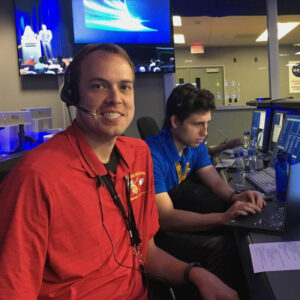
Learn how Todd Brown’s degree and experience at Luther prepared him for his job as Guidance and Control Engineer at NASA Jet Propulsion Laboratory.
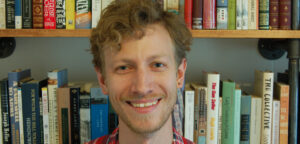
Find out why Dallas Wulf appreciates his liberal arts education and how it helped him prepare for graduate school and his doctorate program.
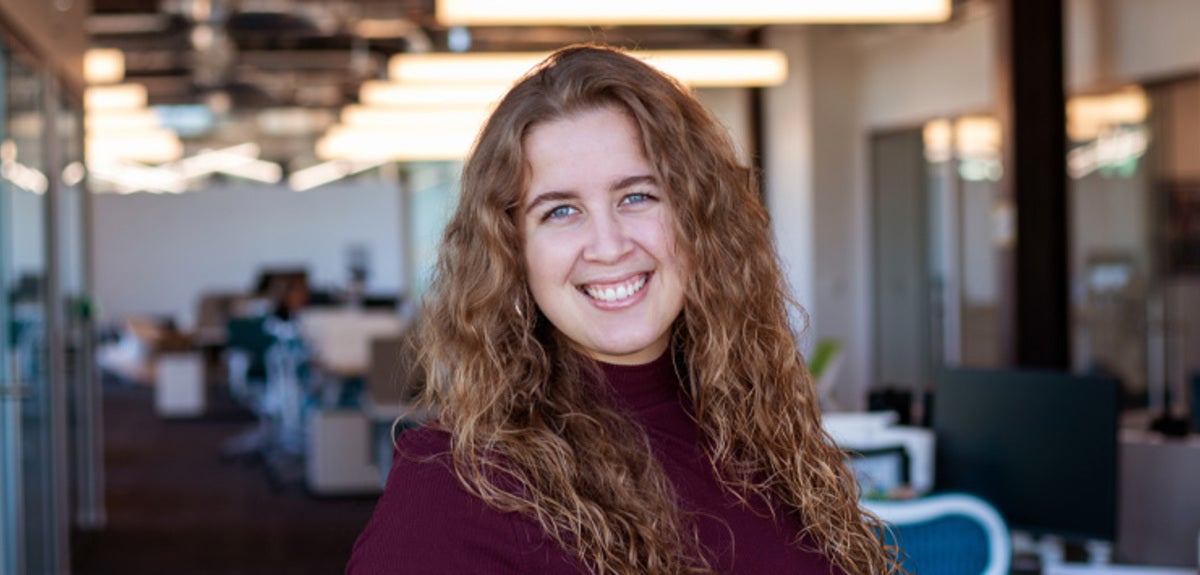
Hear how Madilyn Heinke was able to combine her passions to launch a career that builds on her strengths and the tools she gained at Luther.
Contact Information
Todd Pedlar
Professor of Physics
Physics Department Head
Office
Valders 272D
Phone: 563-387-1628